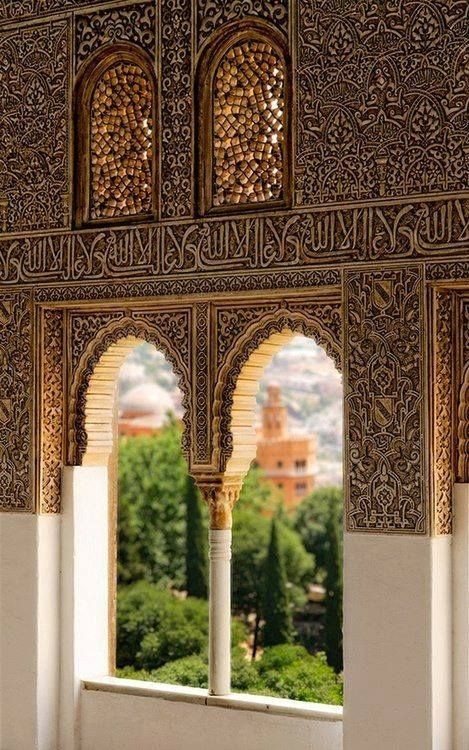The Arabic influence on Spanish is apparent to this day in terms of culture, language, music, and cuisine.
The Arabs ruled most of the Iberian peninsula for 800 years beginning the 8th century. That’s why the Spanish adopted not only words and phrases, but also traditions, customs, and innovations from Arabia.
This influence is evident through many sciences, arts, and disciplines that flourished in Spain. Especially Granada, Seville, and Toledo are cities where you see the Arabic influence on Spanish and the Iberic culture.
Some people think the Arab influence in Spain was limited to the southern region of Andalucía. However, according to scholars, it reached across the Iberian peninsula, which includes Spain and Portugal.
Arabic influence on Spanish culture traveled in time and space to arrive in Latin America during the Spanish invasion.
During the times Arabs ruled spain they did not destroy its culture, they would preserve places, tolerate religions, and absorb cultures.
During the Arab rule in Spain, they created observatories, laboratories, botanical gardens, monuments, buildings, schools, and pharmacies.
Another of the Arabic influences on Spanish sciences was the reintroduction of Aristotelian philosophy, which was unknown in Europe during Medieval times.
Arabs introduced the concept of the zero in Spain. They also brought the game of chess in the year 1000 (first played in the city of Córdoba), as well as Arabic numerals and algebra.
Spanish cooking depicts a great influence of Arabic culinary style. For example, garbanzo beans, which is rarely used in European kitchens, is a main element of Spanish cuisine. Many herbs and spices used in the Spanish cooking also originated from the Arab countries.
The Mosque of Cordoba, Granada’s Alhambra and Seville Giralda are some examples of Arabic architecture in Spain.
The Arabic influence on Spanish runs deep. At least 4,000 Spanish words come from Arabic, which sets Spanish apart from other Romance languages.
The Arab language has a vast vocabulary. That’s why some consider it unparalleled for writing poetry or prose.
Because Arabic was the strongest vehicle to transport their culture, they taught it in Spain.
Modern Spanish is a combination of Arabic words and elements with old Castilian, a linguistic descendant of the vulgar Latin the Romans spoke.
As we can see Arabic is one of the oldest languages in the world and its influence can be seen in all arenas of life.


